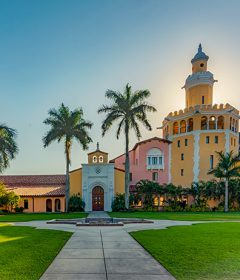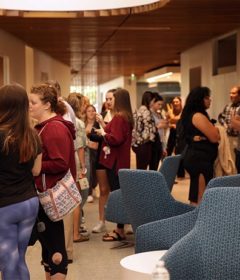Acclaimed historian Mary Beth Norton to speak at Stetson Feb. 20 at 7 p.m.
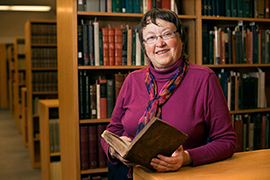
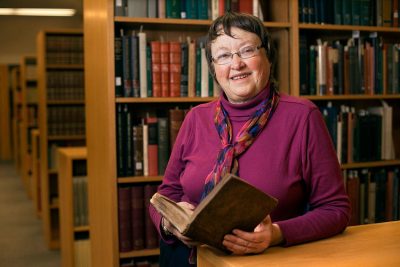
Acclaimed Cornell historian Mary Beth Norton will give a public lecture at Stetson University on Feb. 20 about her newly released book, “1774: The Long Year of Revolution.”
Professor emerita at Cornell University, Norton has written extensively on early American and Revolutionary history, and is one of the leading figures in American women’s history. Her books include “Founding Mothers & Fathers: Gendered Power and the Forming of American Society,” which was a finalist for the Pulitzer Prize, and “In the Devil’s Snare: The Salem Witchcraft Crisis of 1692.”
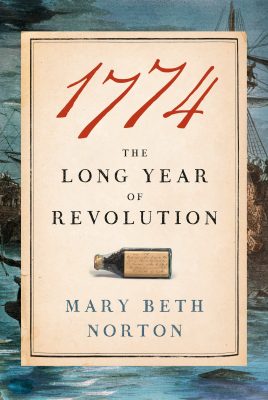
Norton will discuss her latest book on Thursday, Feb. 20, at 7 p.m. in the Rinker Welcome Center, Lynn Presentation Room. A book signing will follow. Cultural Credit is available for students.
The idea for “1774: The Long Year of Revolution” first emerged during research for her dissertation at Harvard University.
While many historians focus on 1775 and 1776 as the pivotal years of the American Revolution, Norton said she pinpointed 1774 as the turning point. That was when American colonists united and divided over British policy in the colonies, and then managed to overcome their differences to join in a revolution against Britain.
Her book opens in December 1773, when Americans learned about Great Britain’s Tea Act, which imposed taxes on the popular import. Her narrative history continues to mid-April 1775, when the first battles of the Revolutionary War broke out in Lexington and Concord, Massachusetts.
“I’ll be introducing the audience to the themes of the book by offering ‘snapshots’ of six primarily little-known events that occurred during 1774,” Norton wrote recently by email.
These snapshots will include “the extremely contentious town meetings in late June 1774 when Bostonians tried to decide whether to pay for the tea or not. And I’ll talk about the public campaign to persuade women not to drink tea by insisting it was bad for their health,” she added.
Norton will visit the DeLand campus from Monday, Feb. 17, through Thursday, Feb. 20, hosted by the President’s Office, and co-sponsored by the History Department and Gender Studies Program. Throughout the week, she will visit several classes and talk with students.
She also will speak to the Stetson community in “Deliberating Things that Matter: Pioneering Women’s History,” which is co-sponsored by Phi Beta Kappa, on Tuesday, Feb. 18 at 4 p.m. in the Carlton Union Building, Faculty and Staff Lounge, Room 105. Cultural Credit is available.
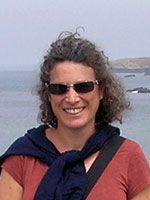
“She’s going to engage in a conversation with students about what it was like to be a pioneer in women’s history and about the ways historical research can be a form of activism,” said Emily Mieras, PhD, associate professor of History and American Studies at Stetson. “The topic is ‘Activism in Academia: Pioneering Women’s History.’ ”
Norton was the first female professor hired in 1971 by Cornell University’s History Department, where she began to immerse herself in American women’s history during the colonial period. She is credited with “giving voice to women who had been shut out of the historical record,” according to a biography about Norton, who served as president of the American Historical Association.
“She is one of the leading figures in American women’s history as it emerged in the 1970s and became a recognized field,” Mieras explained. “This was important because it both inserted women into the historical narrative where they were missing but also suggested ways to change dominant historical interpretations. In other words, when you put a group into a story, the story itself changes.
“It is great to have a scholar like her embedded on campus for a few days interacting with students, staff and faculty in all these different settings,” she added.
Almost 50 years after she became the first female professor in Cornell’s history department, Norton still enjoys bringing women’s voices to the table.
“College students today know little about women’s history because it is rarely taught in high schools and only a few take women’s history courses. Unfortunately, many historians still do not fully integrate women’s history into their narratives of the past,” Norton wrote in the recent email. “So, I enjoy introducing students to just about anything about women’s experiences.”


